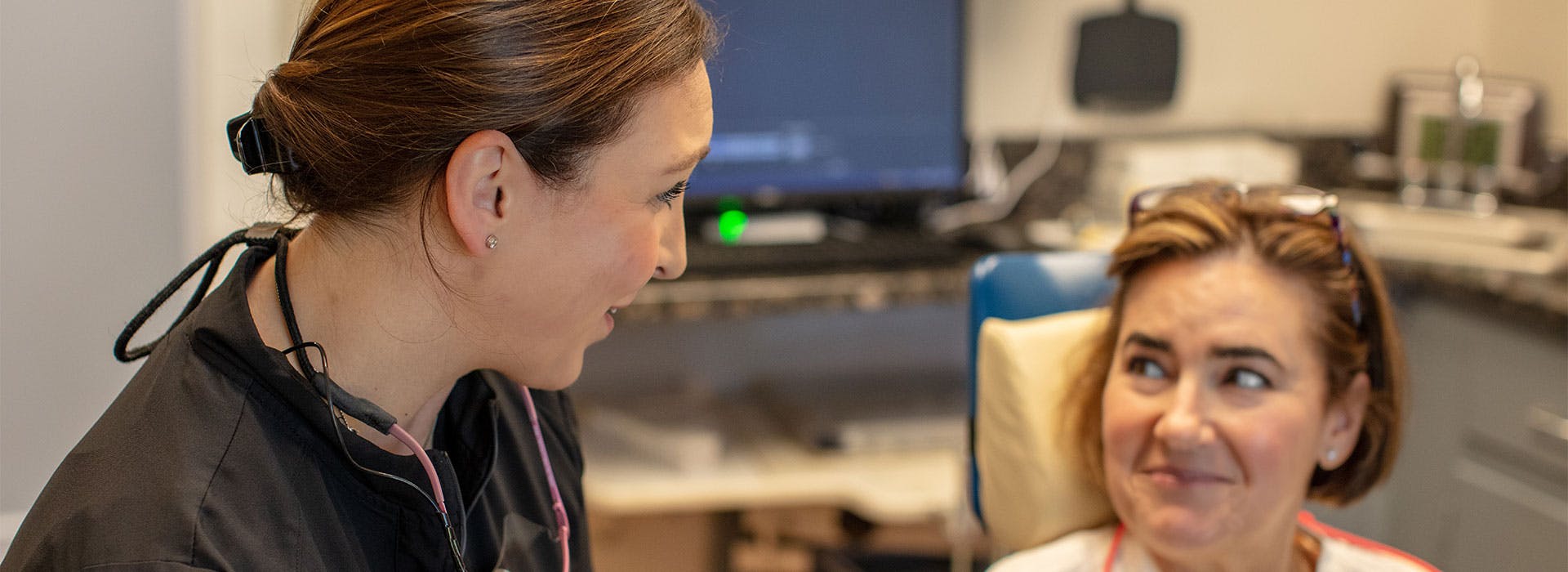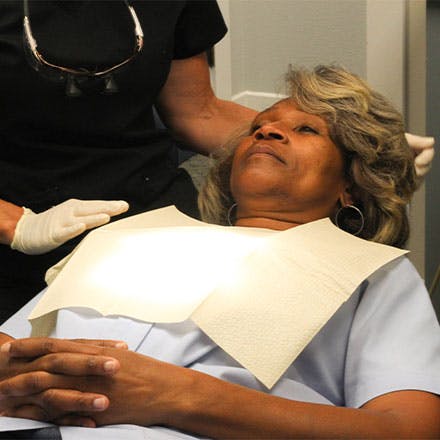
Dental Sleep Medicine
- Home
- Dental Sleep Medicine
Obstructive Sleep Apnea and Oral Appliance Therapy
Obstructive Sleep Apnea
Obstructive sleep apnea (OSA) occurs when your muscles relax during sleep, allowing soft tissue to collapse and block your airway. This can cause you to stop breathing for anywhere from a few seconds to almost a minute at a time. These breathing pauses are followed by brief awakenings that disturb your sleep – even if you don’t realize it!
Symptoms of OSA
Symptoms of obstructive sleep apnea include loud or frequent snoring or silent pauses in breathing and choking or gasping sounds. Other common symptoms include:
- Waking in the morning feeling unrefreshed
- Being tired during the day
- Morning headaches
- Waking up frequently at night to go to the bathroom
- Difficulty concentrating or remembering things
How is OSA Diagnosed?
Obstructive sleep apnea must be diagnosed by a doctor, so you should ask your primary care doctor for a sleep evaluation. Your primary care doctor may provide a diagnosis or may refer you to a doctor who specializes in treating sleep problems. To find out if you have OSA, your doctor or the sleep specialist will complete a sleep evaluation. This may involve either an overnight sleep test at a sleep center or a home sleep apnea test (HSAT). A sleep specialist will interpret the data from your sleep test. The information from the evaluation and the sleep test results will be used to determine if you have OSA.

Oral Appliance Therapy
OAT is an effective, noninvasive treatment option for snoring and OSA that fits easily into your lifestyle. An oral appliance looks like an orthodontic retainer and is worn only during sleep. It supports the jaw in a forward position to help keep your upper airway open, which prevents sleep apnea and snoring.
Dr. Jacqueline Delash is trained to provide OAT and can make a custom-fitted oral appliance using impressions and models of your mouth. Patients enjoy it because it’s comfortable, easy to wear, quiet, portable, convenient for travel, and easy to clean.
If you think you may have sleep apnea – don’t worry – we can help. Schedule a consultation to discuss sleep apnea by calling 770-461-1141.
About Dr. Jacqueline Delash
Dr. Delash graduated with a Doctor of Medicine in Dentistry (DMD) degree from The Dental College of Georgia in Augusta, GA, and joined Fogle Family Dental in 2022. She has been treating sleep-related breathing disorders since 2017, and served as Assistant Professor at The Dental College of Georgia department of Restorative Sciences and The Medical College of Georgia department of Pulmonology.
